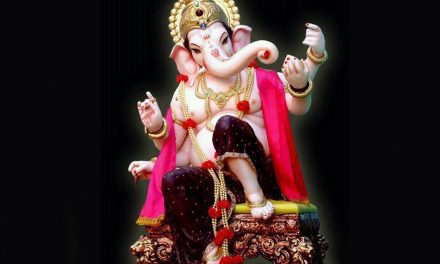Emperor Janamejaya was the son of Maharaja Pariksit and the great-grandson of Arjuna. Pariksit was the son of Abhimanyu, and Abhimanyu was the son of Arjuna and Subhardra, and the nephew of Sri Krsna. He took up the Kuru throne following the death of father.
Janamejaya was the listener of the first narration of the epic Mahabharata, spoken by Vaishampayana, the disciple of Sri Veda Vyasa, and he later was responsible for retelling the epic story. Mahabharata was recited to Janamejaya after he asked the sage Vaishampayana about his ancestors. The story of his lineage spanned from the time of Bharata up to the great Kurukshetra war between his great grandfathers the Pandavas and their paternal cousins, the Kauravas.
In the Mahabharata, Janamejaya is mentioned as having six able brothers: Kakshasena, Ugrasena, Chitrasena, Indrasena, Sushena and Nakhaysena. The opening chapters of Mahabharata narrate various aspects of Janamejaya’s life, including his conquest of Takshasila and his encounter with Naga Takshaka.
Janamejaya wished to exterminate the race of Nagas, because Takshaka was responsible for the death of his father Pariksit.
Following is a copy of the original Dana Sasana Patram of King Janamejaya. Such Dana Patras (letters of donation) and Dana Stotras (poems of donations) serve as historical artifacts that help us to confirm timelines for pastimes described in the Vedic literatures.
This image of King Janamejaya’s Dana Sasana Patram is published in the Teluga Encyclopedia, Vignayana Sarvaswamu, page 561, which states:
“Vyasa began writing the Mahabharatam titled ‘Jaya’ in year 1 of the Kali Yuga. That is called Jayabhyudaya Yudhisthira Sakam. Parikshit died in in Kaliyuga 60. Then Janamejaya was coronated the King. His Dana Sasana Patram (Gift Decree Letter) is given below (see full-size image below).
Sri Kuru Vamsavatamsa
Sri janamejaya Bhoopalanam Dana Sasana Patram
The letter of decree of gift of the king,
Sri Janamejaya of the Sri Kuru Vamsa
(…time)
In the 89th year of of Jayabhyudaya Yudhisthira Saka, in the Plavangakhya, In the Sahasya Masi, on the Amavasya Day (New Moon Day), on a Monday, Sri Janamejaya, ruler of the earth (king), born in the Gotra of Vaiagrani Vayaghra, enthroned in the city of Kishkinda, the protector of all varnas and Asramas (classes and stages),
(… place)
in the western city of Sitapura, in the Vrukodara Kshetra ( Vrukodara means Bhima),
(… deities)
for the worship of SitaRama who are worshipped by the honoured disciple Kaikaya of GarudaVahana (means Vishnu) Tirtha (water place) and others of the matha (mutt – mission) of the band of munis (saints),
(…the gift)
I give in the hands of the Yati (saint), along with Gold, the decree of the donation of land, of the area to the east of the Tungabhadra Jaladhara (called River Pampa by Valmiki), , in the presence of HariHara (Vishnu and Siva) in the time of aparaga(?)
(… the purpose)
for the attainment of Vishnuloka by my forefathers, in the order of the four boundaries of the Muni brunda Kshetra, established by my great grandfather Yudhisthira.”
89 years, after Vyasa started writing the Mahabharata (Jaya), Janamejaya, (Arjuna’s great grand son), made a gift of land to a saint, near the Tungabhadra. Janamejaya ruled in Kishkinda (Hampi). Janamejaya worshipped Sita, Rama and Hari (Vishnu) and Hara (Siva).











